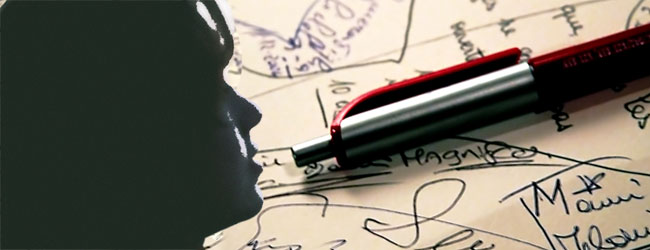30 September 2011
The Seanad, House of Lords and upper houses
Do we want a Seanad?
BY TALLYER
 THE POOR OUL’ SEANAD has more arrows hanging out of it than Custer had. No one has a good word to say about it. Most of us have an opinion about the Seanad but how many of us understand how it works or what its purpose is?
THE POOR OUL’ SEANAD has more arrows hanging out of it than Custer had. No one has a good word to say about it. Most of us have an opinion about the Seanad but how many of us understand how it works or what its purpose is?
Political systems that have two houses are called bicameral, camera being the Latin for chamber (I knew those Latin classes with the Christian Brothers would come in useful someday).
In classical systems, like the Roman one, the Senate was an advisory body (literally a ‘Council of Elders’) and in modern systems that is somewhat maintained. Most senates are ‘upper’ houses in that they are supposed to represent a higher-ranked section of society (whatever that means), although in all cases they have less power than the ‘lower’ house.
The most famous/infamous ‘upper’ house is the British House of Lords. Here the aristocracy deign to scrutinise legislation that has been produced in the Commons by elected Members of Parliament. It all has its roots in the history of the English Civil War. Although the House of Lords can create difficulties for a British government, they do not have significant political power.
The other main sort of modern senate is based on the American model. This model is mostly attributed to James Madison, who was known as ‘the Father of the American Constitution’ and its fourth president. Madison sought to introduce checks and balances in government. In the Federalist Papers published in the 1780s he said: “It is a misfortune incident to republican government . . . that those who administer it may forget their obligations to their constituents, and prove unfaithful to their important trust.” The Senate, he argued, “must be a salutary check on the government”. (A pity that Bertie and his pals didn’t read Madison!)
The main benefit of the American Senate is the equal representation from each state regardless of population. Most federal states that have a senate (Germany, Argentina, Brazil, Canada, Switzerland), follow this model or a version of it. It is also a relatively stable institution, with one third of the seats up for election every two years.
The Seanad here in Ireland isn’t supposed to give equal voice based on geographic area but is supposed to give a voice to different sections of society. The idea is that people actually involved in agriculture get voted onto the Agricultural Panel and so bring their expertise particularly to legislation related to agriculture. Of course, we know that’s not how it works out, but is it a bad idea? Could it be made to work? How could we stop it being used by political parties for other reasons?
Do we need a second house? If we have a second house, how should we elect it? Could checks and balances be implemented through a more developed committee system in the Dáil? These are the political choices we face. A truly independent, non-party-political, second house could be a powerful check on political elites.
If we were to go that road it would have to be elected by a popular vote of the people and not by the limited, convoluted franchise that now exists.
It would need to be independent of party politics. One way of doing this could be to stipulate that to stand for the Seanad someone cannot have been a candidate in any other election in the previous five years.
We could stagger the election of members of the Seanad. For example, one third elected every two years for a six-year term. This would add stability.
We could have the Seanad as a part-time house with an oversight role only. That is, their job would be to liaise with relevant bodies in society in relation to proposed legislation with a view to amending it. This would only make sense in conjunction with reform of local government and of the Dáil committee system.
Or maybe the Seanad has had its day. Maybe the slings and arrows are deserved and maybe it is time . . .
To die: to sleep;
No more; and by a sleep to say we end
The heartache and the thousand natural shocks
That flesh is heir to.
(With apologies to The Bard.)
Editor’s note: This article is carried to stimulate debate. Sinn Féin policy on political reform can be viewed at www.sinnfein.ie
Follow us on Facebook
An Phoblacht on Twitter
Uncomfortable Conversations

An initiative for dialogue
for reconciliation
— — — — — — —
Contributions from key figures in the churches, academia and wider civic society as well as senior republican figures




